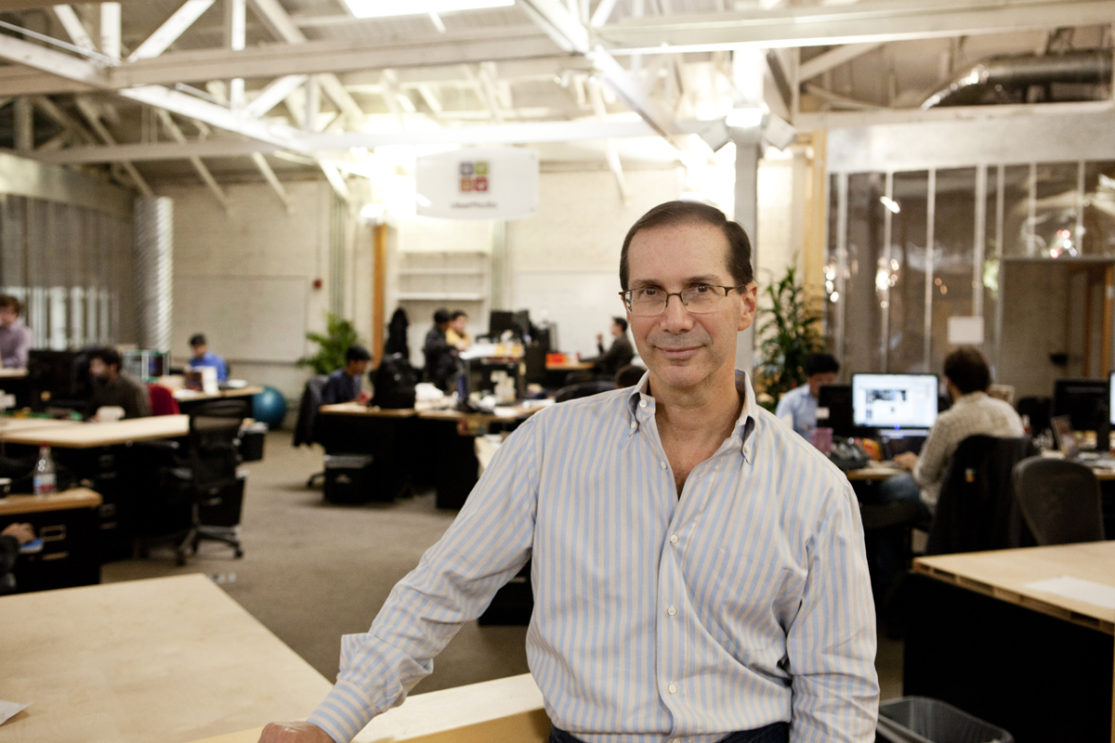Bill Gross is one of those minds that comes along once a generation. I honestly think he will go down as the next great inventor, the Thomas Edison of the 21st century. And why not? The man has been an entrepreneurial whiz since undercutting the local department store and selling candy bars in his apartment building at age 13. The calculable risks and rewards were intoxicating. “I became addicted to the idea to try and make a business that worked,” says Gross.
After graduating and starting a successful stereo business in Pasadena, Gross began reading Fortune religiously. He built solid relationships with the customers who came into his store, and a few even became business mentors. His next big move was creating Knowledge Adventure with his brother Larry. Knowledge Adventure produced educational software, including the Adiboo and JumpStart series of grade-based and subject-based titles for children. The company was formed in 1996, eventually being acquired by Vivendi. Yet Gross wasn’t satisfied. “After you [hire] 100 people in a company, you cannot give 1% to each of them anymore; just a fraction of a percent. Magic happens when you give more than 1% of the company to a person. It opens up their imagination.”
Gross was transfixed with this idea of opening a person’s imagination by giving them greater control in their company, and, in essence, their future. Rather than start new projects within Knowledge Adventure, Gross decided to start new companies and give people larger equity stakes, all institutionalized under one roof. A new equity pool for each company, to be divided amongst the employees, created motivation and fostered incredible imagination. Gross launched Idealab in 1996 to house all of those companies under one roof. He built companies with his ideas, with the ideas of others, and a seamless integration of the two.
In 16 years at Idealab, Gross estimates he has created more than 10,000 jobs and between $8 and $9 billion in market value. “We had a lot of successes and lots of failures,” says Gross. “Around 40 companies had successful IPOs and acquisition, 25 are still operating, and 35 were unsuccessful. I learned a lot from those failures.” The companies he takes the most pride in are Overture, the company that pioneered paid search online and became the foundation for the monetization of Yahoo and Google, and CarsDirect.com, an experiment in credit-card comfort in online experiences, positively impacting early e-commerce. Founded in 1998, CarsDirect.com appeared on the landscape “before people were comfortable using a credit card to buy goods – especially a car – online.”
Surround yourself with a team of complementary skills that you don’t have.
“We had many others that impacted the marketplace, even one called WorldHouse to pioneer low cost housing, a sub-$2000 house, that people can afford,” explains Gross. “We are taking advantage of new technology in home construction and have started building homes in India. They are solar powered with LED lighting. This company can have a large impact and lift an entire generation to a new economic and social level.” Allowing his words to breathe, he finally adds, “I love making a big impact.”
There is no idea that is too controversial or too bold for Gross. He sees an era of big opportunities coming with the rise of big data. “This is a new revolution. The person who uses it has the competitive advantage. People need the mindset that data can be their best friend.” Gross visualizes creating another 20 companies over the next 10 years – companies that will impact the world and change the status quo. He is undaunted by pessimism and has used doubters’ negativity to fuel his resolve. “Naysayers made it more exciting,” he says of his previous gambles that paid big dividends.
“The way to lift the world is through technology,” Gross says philosophically. “We do not see competition as a problem. Overcoming customer beliefs is the real problem. It’s a great time to be an entrepreneur,” he contends, adding that he even advocates the advantages of entrepreneurialism to kids, because of the resources and mentors that are currently available to them. “When I started 30 years ago, it was hard to get people to join startups,” he recalls. “Today you do not have to convince parents that it is a good idea to start a new company.”
And that level playing field that seemed so elusive to start-ups who were just trying to gain a foothold in their industry? Today, it seems permanently skewed toward equanimity. “Never before could a small company move fast and become a Goliath in years,” he professes. “Today, companies have instant global reach. Previously, companies had to find the global distribution [and overcome] lots of barriers of entry.”
Gross’s advice for the budding entrepreneur? “Surround yourself with a team of complementary skills that you don’t have,” he advises. “Learn how to find the capital and raise enough money to get the service to the market.” He saves his most insightful comments for tech. “IT is more about surviving than blitzing,” says Gross. “New ideas need time to convince people to use them. Get good advisors and get them to help recruit the complementary team. You need to last long enough for the breakthrough idea to get adopted.
Given the torrential pace of innovation, staying relevant has never been more of a challenge. “It is the classic innovator’s dilemma,” he muses. “A little competitor has nothing to lose and is willing to innovate. In the world of atoms, it was the turn of inventory that mattered. Dell outran every other company with one turn per week of inventory compared to Compaq with four turns of inventory per year. This new era of bits turns on ideas and not inventory,” he explains. “How many times can you try a new idea and iterate and innovate? Small changes can be very important.
“Learning startup methodology is key,” Gross continues. “Test is with the consumers. Any company in the world can only win if they iterate quicker compared to their competition. A perfect example is the Myspace Facebook competition, where Facebook iterated faster and took the lead. Every company can win by iterating more quickly.”
Gross is incredibly excited to see the increased attention being heaped on Los Angeles. “I definitely think LA can create great companies,” he enthuses. “We have found that there is equal talent [in SoCal as compared to Silicon Valley]. They are harder to find,” he admits, “but much more loyal. LA has a more stable workforce [and] a huge advantage in the diversity of its population.”
Bill Gross is an institution in the Los Angeles entrepreneurial community, one that will continue to influence the area in untold ways for years. I’ve been excited about Gross since day one, and it’s good to see Los Angeles, and the rest of the country finally taking notice.














































